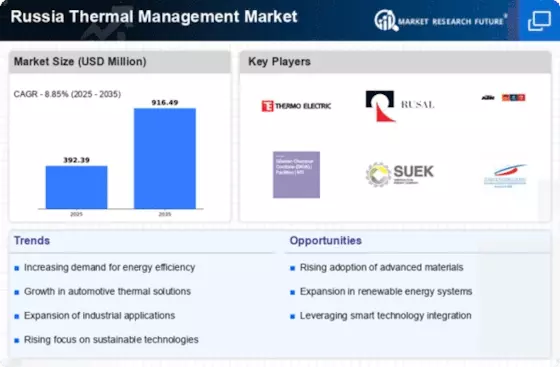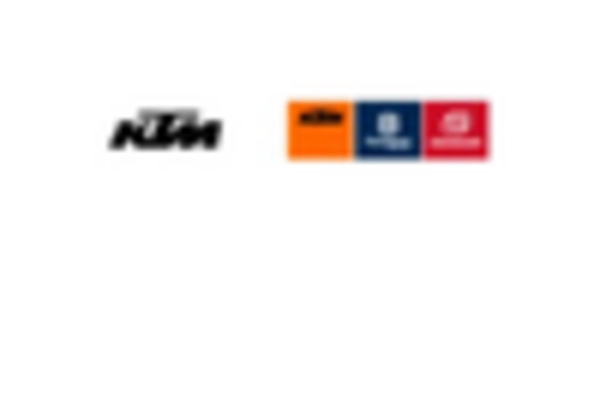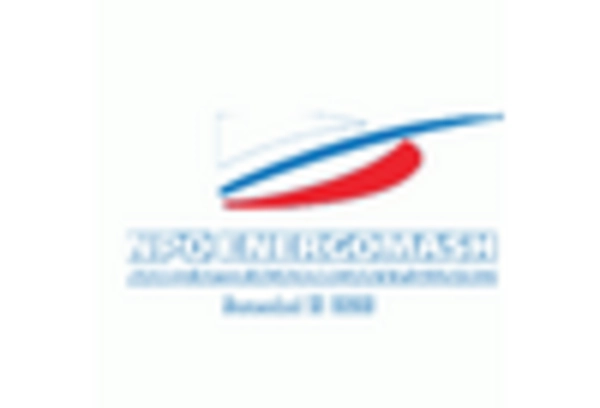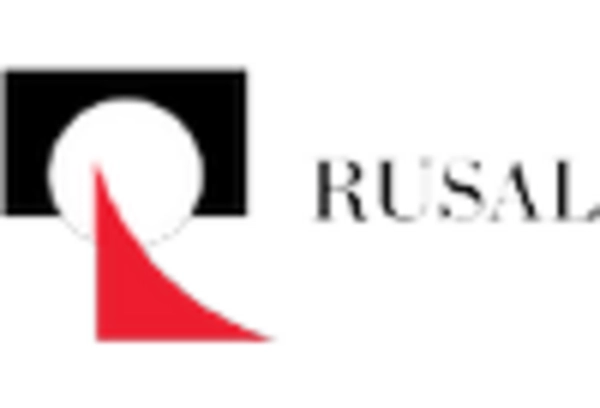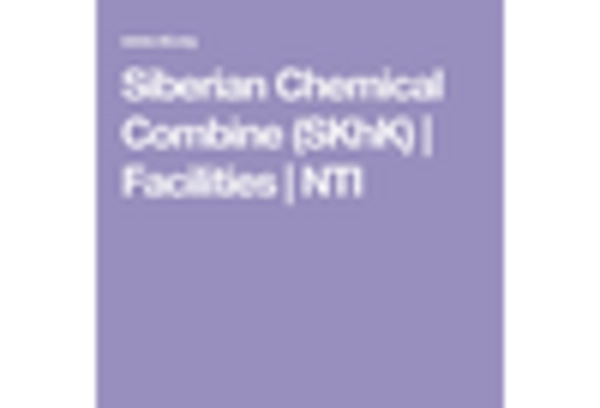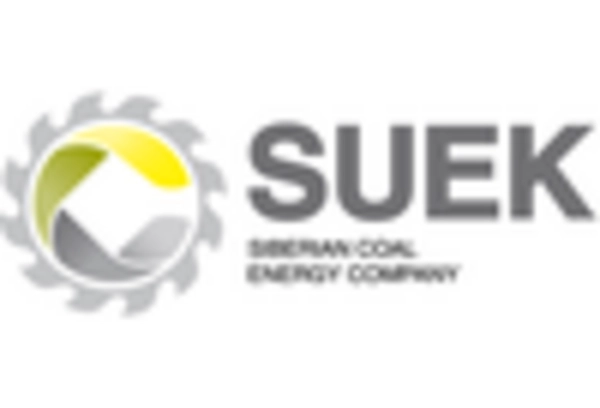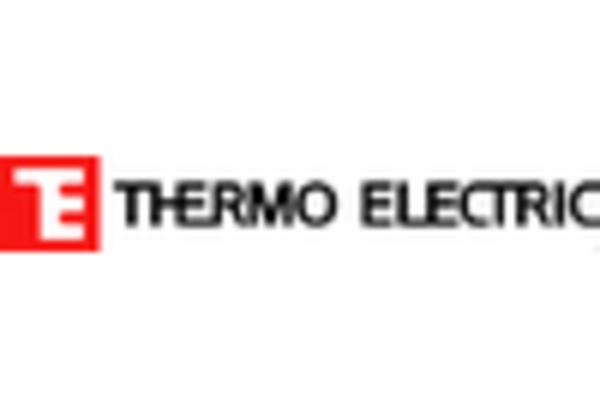Rising Energy Costs
The escalating energy costs in Russia are significantly influencing the Russia Thermal Management Market. As energy prices continue to rise, businesses are compelled to seek solutions that enhance energy efficiency and reduce operational costs. This trend is particularly evident in sectors such as HVAC and refrigeration, where thermal management plays a crucial role in optimizing energy consumption. Reports indicate that energy costs in Russia have increased by approximately 15% over the past five years, prompting companies to invest in advanced thermal management systems. These systems not only help in minimizing energy usage but also contribute to sustainability goals, making them an attractive option for businesses aiming to reduce their carbon footprint.
Increasing Industrialization
The ongoing industrialization in Russia is a pivotal driver for the Russia Thermal Management Market. As various sectors, including manufacturing and energy, expand, the demand for effective thermal management solutions rises. Industries such as automotive and electronics are particularly notable, as they require advanced thermal management systems to ensure operational efficiency and product longevity. According to recent data, the industrial sector in Russia is projected to grow at a rate of 3.5% annually, which could lead to increased investments in thermal management technologies. This growth necessitates the development of innovative thermal solutions that can withstand the unique climatic conditions of Russia, thereby enhancing the overall performance of industrial operations.
Growing Demand in the Automotive Sector
The automotive sector in Russia is experiencing a surge in demand for thermal management solutions, which is a key driver for the Russia Thermal Management Market. As the automotive industry shifts towards electric vehicles (EVs) and hybrid models, the need for efficient thermal management systems becomes paramount. These systems are essential for maintaining optimal battery temperatures and ensuring the overall performance of EVs. The Russian automotive market is projected to grow by 4% annually, with a significant portion of this growth attributed to the increasing adoption of EVs. Consequently, manufacturers are investing in advanced thermal management technologies to meet the evolving needs of the automotive sector, thereby propelling the market forward.
Government Initiatives for Energy Efficiency
The Russian government has implemented various initiatives aimed at promoting energy efficiency, which serves as a significant driver for the Russia Thermal Management Market. Policies encouraging the adoption of energy-efficient technologies are gaining traction, particularly in the context of national energy security and environmental sustainability. The government has set ambitious targets for reducing energy consumption across various sectors, which has led to increased funding for research and development in thermal management solutions. For instance, the Energy Strategy of Russia outlines plans to enhance energy efficiency by 40% by 2030, thereby creating a favorable environment for the growth of the thermal management market.
Technological Advancements in Thermal Solutions
Technological advancements are reshaping the landscape of the Russia Thermal Management Market. Innovations in materials and design are leading to the development of more efficient thermal management systems. For example, the introduction of phase change materials and advanced heat exchangers is enhancing the performance of thermal management solutions across various applications. The market is witnessing a shift towards smart thermal management systems that integrate IoT technology, allowing for real-time monitoring and optimization. This trend is expected to drive market growth, as businesses increasingly seek to leverage technology to improve operational efficiency and reduce costs. The Russian market is poised to benefit from these advancements, potentially leading to a market growth rate of 5% annually.


